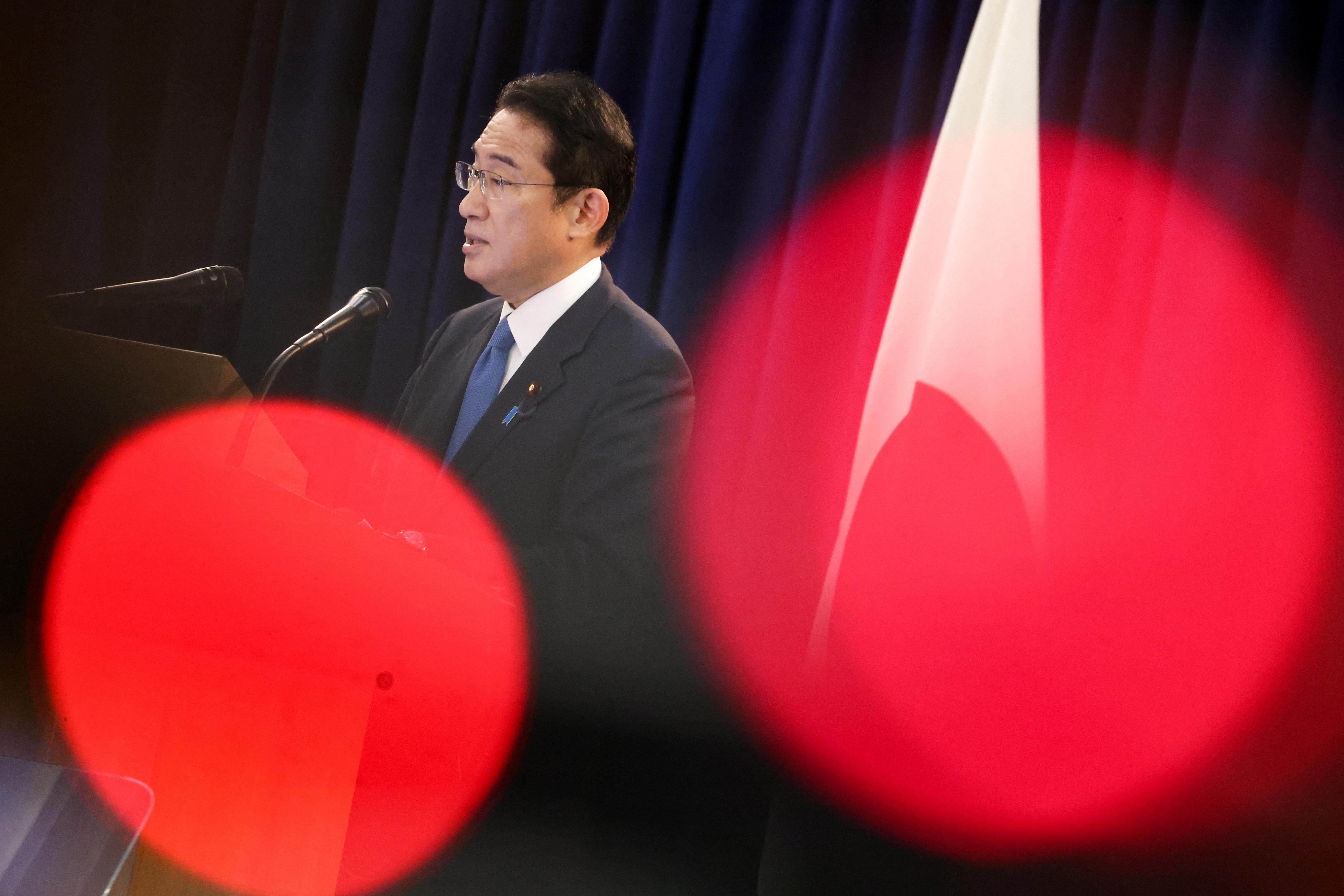Japan held a controversial state funeral Tuesday for former PM Shinzo Abe, who was assassinated in early July. Now that the ceremony is over, one attendee who'll feel some relief is Fumio Kishida, the embattled current prime minister.
How did we get here? Since seeing his popularity soar to a record high after responding to Russia’s invasion of Ukraine with unusual toughness, three months ago Kishida’s approval rating started to slip. It was mainly over the economy — with many Japanese people starting to panic over inflation after 20 years of deflation.
Abe’s assassination swept the ruling Liberal Democratic Party to a decisive victory in the upper house election three days later, but soon after that, the blowback from his tragic death made the Japanese public sour on the PM. First, Abe's assassin blamed his family's financial ruin on the Unification Church, a cult-like religious movement born in South Korea whose members are known as Moonies (after founder Sun Myung Moon).
The revelation sparked a public outcry against the Moonies, which have long been cozy with the LDP — including Abe himself. Kishida, who has no ties to the church, responded to the backlash by firing his cabinet ministers with Moonie baggage, but the scandal just won't go away.
At the same time, Kishida waded into an unforeseen culture war by authorizing a state funeral for Abe. That struck a sour note for the majority of Japanese voters who oppose the taxpayer-funded $11.5 million ceremony because it’s an honor traditionally reserved for members of the Imperial Family.
Until Abe, only Shigeru Yoshida, Japan’s first postwar PM, had received a funeral with all the state bells and whistles. While Abe fans might argue that he deserves the same treatment as the country’s longest-serving PM, David Boling, Eurasia Group’s lead Japan analyst, says the backlash shows that Abe’s hawkish politics were always divisive. (To get an idea of how much, days ago an elderly man set himself on fire in central Tokyo to protest the funeral.)
Also, the economy has gone from bad to worse. Last week, the Bank of Japan intervened for the first time since 1998 to prop up the yen after the currency hit a new low, having lost one-fifth of its value against the dollar in 2022. Japan is not the only country grappling with high inflation and a weak currency, but it has stubbornly refused to raise interest rates in response.
Annual core inflation reached 2.8% in August, which may not sound like much yet is historically very high for Japan. Boling says that rising prices — which the government can do little about — and the central bank dragging its feet on rate hikes make Kishida look ineffective.
Is the PM in real danger of losing his job? Not yet, but for Boling he's close to the "danger zone" with an average approval rating of about 37%. If Kishida’s numbers go down even more a month from now, "that becomes a bigger concern, and he really hits the panic button."
Still, Kishida has two things going for him.
First, the PM doesn't have an election on the horizon. That’s what doomed his predecessor, Yoshihide Suga, who stepped down with a similar approval rating a year ago. Kishida then won the LDP leadership race and captained the party to a comfortable majority in the October 2021 lower house election.
Second, Boling says that the opposition remains disorganized and fragmented. Meanwhile, the LDP's so-called Abe faction, the main ruling party bloc that might seek to challenge Kishida in the near term, is leaderless.
Kishida also has a personal reason to stay. Next year, Japan takes over the presidency of the G7, which will hold its 2023 summit in Hiroshima, the PM’s electoral district. Kishida wants to use the symbolism of the location to make a big splash about nuclear weapons non-proliferation.
Finally, Boling says Kishida’s low numbers don’t necessarily reflect his personal popularity among the Japanese public. He is perceived as someone who listens more and is less in-your-face than Abe or Suga — the flip side is that he's also seen as rather bland and indecisive on policy.
The upshot: Since 2000, only two of Japan’s prime ministers have served more than 15 months in office: the larger-than-life Abe and the flamboyant Junichiro Koizumi, famous for serenading then-US President George W. Bush with Elvis songs. The more low-key Kishida hardly has their charisma, yet could follow in their footsteps if he weathers the current storm.
This article comes to you from the Signal newsletter team of GZERO Media. Sign up today.
